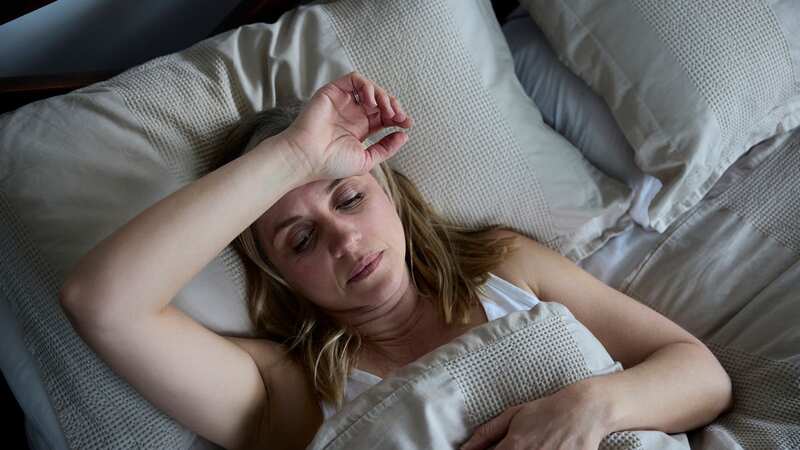7 surprisingly caffeine-heavy foods and drinks that might be why you can't sleep

There are may other sources of caffeine than coffee - and too much of the stimulant can be bad for you're health.
Not only does caffeine make it harder to fall asleep, it also can cause anxiety and headaches. NHS doesn't give an upper limit for daily caffeine intake, but other sources recommend a limit of 400mg a day. Some coffees from high street chains can contain around half of this figure.
And pregnant women must not exceed 200mg a day anyway, sports nutritionists say. Experts have shared advice on how to avoid further caffeine from other sources, such as fizzy drinks.
Even substituting your coffee for a mug of tea might not be beneficial as some teas also contain the stimulant - albeit in lesser volume. Fruit teas, however, do not contain any caffeine.
There are ways to energise without coffee too, experts stress. High protein breakfasts, such as Greek yoghurt with berries, can help the body slowly garner and release energy as the day progresses.
 'My neighbour's screaming baby keeps me up all night - I'm sick of it'
'My neighbour's screaming baby keeps me up all night - I'm sick of it'
Jess Hillard, sports nutritionist at Warrior, said: "I would advise avoiding caffeine before bed, and even try to stop drinking coffee up to six hours before you plan to go to bed as it stays in your system for this long and increases alertness, making it harder to fall asleep."
Dark chocolate
Speaking to The Sun, Jess recommends not to eat dark chocolate before bed as it too can cause increased alertness. Like coffee, it contains caffeine - a 100g bar of dark chocolate - with a high percentage of cocoa (70 per cent and above) - contains around 80mg of the stimulant, Jess says.
One large square packs in around 25mg of caffeine. Jess says: “In comparison, one whole bar of milk chocolate would average 20mg of caffeine.” But the milk chocolate would have a higher content of sugar - so both are not advisable too close to bedtime, regardless.
Kombucha
A fermented drink said to provide gut health benefits, kombucha is a favourite among the health-conscious. But it is made from tea leaves, which naturally contain caffeine.
Although the caffeine content of kombucha tends to be minimal, it’s still worth flagging as 250ml of kombucha can contain up to 15mg of caffeine.
Tea
Your other hot drink choice, tea, can also contain caffeine. Jess says: “Everyday tea, breakfast tea and green tea both contain naturally occurring caffeine in the tea. One mug of brewed tea contains around 30 to 50mg of caffeine.”
However, the amount of caffeine will vary depending on how strong you have your tea. Teas that don’t contain caffeine include chamomile, fruit teas and peppermint.
Mints
The after-dinner mints may be a refreshment but can sometimes contain caffeine, according to Rob Hobson, a nutritionist.
“Mint doesn’t contain caffeine but check the label as some that are flavoured with matcha or labelled as ‘energy’ mints will contain some caffeine,” he says.
Fizzy drinks
It’s not just the high sugar content in many fizzy drinks which can be a cause for concern, as several contain high amounts of caffeine too.
 Expert shares major tell-tale signs of bed-bugs - including 'rusty smell'
Expert shares major tell-tale signs of bed-bugs - including 'rusty smell'
Having a can in the evening is not the best idea, or several across the day. Jess says: “Coca-cola contains caffeine, whether you’re opting for the full fat or diet versions. One can contains 34mg of caffeine, averaging the same as a cup of tea! This is one to watch in the evening for sure.” Other caffeinated fizzy drinks include Dr Pepper and of course, energy drinks like Red Bull.
Pudding
Your chosen dessert could help to keep you awake, too.
Rob says: “Tiramisu is probably the most obvious caffeinated dessert as it contains coffee but also anything with dark chocolate will contain a little caffeine.” A chocolate torte or dark chocolate lava cake, for example.
Ice cream
A favourite food on a hot day, or enjoyed whilst watching TV, certain flavours of ice cream can also contain caffeine.
Nutritionist Rob Hobson says: “You may want to choose an ice cream that is not coffee flavoured as some of these can contain over 50mg of caffeine in just two scoops.” It’s not just coffee-flavoured ice cream, however. Chocolate ice cream can also contain stimulating caffeine.
Read more similar news:
Comments:
comments powered by Disqus

































